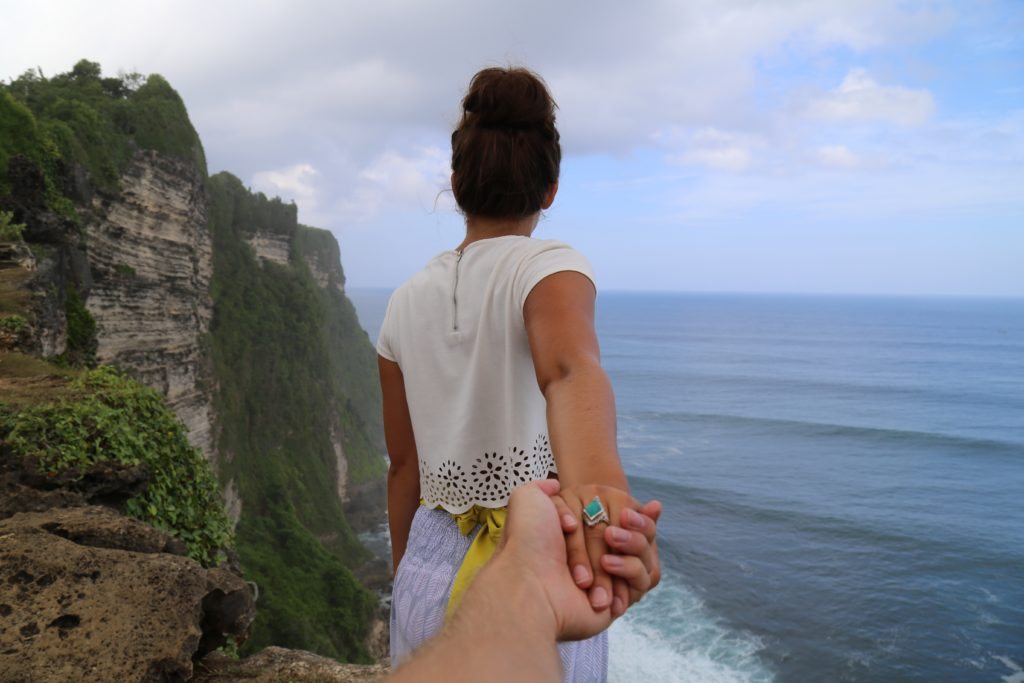Loving Bravely: 20 Lessons of Self-Discovery To Help You Get The Love You Want
My Journey to Loving Bravely

I have been working as a couple therapist and professor at The Family Institute at Northwestern University for about 15 years. I do therapy with individual adults and couples—work that is sacred to me. People grant me access into the inner most rooms of themselves and their romantic relationships. I can honestly say that I have never once felt bored in my work as a therapist, and no aspect of doing therapy ever feels routine or predictable to me. My clients have taught me a TON about love, intimacy, and trust.
I also teach. I train grad students to do couple therapy in our Masters of Science in Marriage and Family Therapy (MSMFT) program in a course called Intimate Relations, and I teach a unique undergraduate course called Building Loving and Lasting Relationships: Marriage 101. No surprise—this is the most popular class on campus! It sits at the intersection of academic learning and experiential learning with the goal of helping young adults develop the tools they need to be successful in their intimate relationship. Over the course of my career, I have been doing the kinds of things expected of academics—writing for peer reviewed academic journals, serving as a reviewer for journals, and presenting at academic conferences, but I have known all along where my real passion lives. I LOVE translating what we do in our therapy offices and in our classrooms to the general public. This means that I give a lot of presentations and I do a lot of media work. I am passionate about bridging the academic and clinical world and the “real” world.
So all of this living and loving led me to a place of feeling ready for and curious about writing a book. I found myself troubled by the message of most of the dating books I reviewed. The theme in these books seems to be—“follow my rules and you will find your soulmate.” But if one approaches love as a game to be won, then what happens after you “win”? You’ve followed a set of externally determined rules and not truly done any prep for the relationship itself. Books like these are externally focused and that’s just not enough!
That external focus lingers with people even as the move from the dating world into a romantic relationship. I feel like I can put my therapy clients into two categories:
Category #1: Clients who get stuck in this finger-pointing stance, seemingly convinced that “this relationship would be fine and dandy if you, Dr. Solomon, could just fix him/her, thank you very much.”
Category #2: Clients who are willing to hold up a mirror and explore their part of the “dance”, whatever that dance is. These clients are able to ask themselves the courageous and curious question, “What’s it like to be with me right now?”
That willingness to turn one’s attention inward is crucial in order to create and nurture a healthy romantic relationship. It is the foundation of our Marriage 101 course. It is a key piece of what I work on with my therapists in training—the ability to work with their own reactions, judgements and emotions when they are sitting with couples. And it is what makes or breaks a couple in my office. So I knew from the get-go that I wanted to write about the SELF in love. I wanted to write a book that would help people strengthen this skill. My team of brilliant graduate students and I decided we would call this skill relational self-awareness.
Relational self-awareness is the ability, in an ongoing way, to take a curious and compassionate stance vis a vis your SELF in order to be healthy, available, and present for your intimate relationship. Relational self-awareness is the single best tool you can have for navigating the complexities of the dating world and the complexities of love.
My Stuff + Your Stuff = Our Stuff
 Image, Jenn Richardson
Image, Jenn Richardson
We are mammals, and as mammals, we are hard wired for love. In our bones is the desire to attach to someone—to allow them to matter to us and to want very badly to matter to them. With this, comes tremendous emotional vulnerability. Therefore, falling in love today awakens old stuff in us-- stuff that was tender and therefore shut away, boxed up, better left unacknowledged. But when we fall in love with someone, it is like shaking a snow globe. It is inevitable that old stuff gets stirred, so the only question is whether we will have the courage to be honest with ourselves and our partner about what is being stirred.
The intention of Loving Bravely is to help people sit with themselves and all of what loving someone brings up. The degree to which we can do that is the degree to which we can create intimacy in the space between self and other. Relational self-awareness then is not a one-time event. It is an ongoing process. A paradigm shift. It is a commitment to looking at ourselves again and again, knowing that MY STUFF + YOUR STUFF = OUR STUFF. It’s really easy to get focused on the YOUR stuff piece, but loving bravely is about being willing to keep ourselves in the equation. Being ready, willing, and able to “own” your stuff is the secret to success in love!
Now More Than Ever
 Image, Tord Sollie
Image, Tord Sollie
There are several reasons why I believe with all of my heart that we need books like Loving Bravely today more than ever. First, we expect more from love than ever before. Back in the day people looked for someone with strong child-bearing hips or a nice piece of land they could farm together. Nowadays, we want a lover, a best friend, a co-parent, a business partner, a soulmate. I have no problem with our expectations being way up, but it means we must bring our “A game.” If we want true emotional intimacy, we must be willing to do what it takes to create that.
Next, at the same time as we are expecting more emotional intimacy than ever, we are also more externally focused than ever. I talk a lot (in the book, on the road, in my therapy office) about love in the digital age. We are distracted a lot and we have a consumer attitude—swiping for love and focused on “what have you done for me lately.”
Finally, our current political climate is full of polarization and fear. To me, there are really only two kinds of energy out there—fear and love. The path to healing, within ourselves, our marriages, our country, our world, has always been and will always be, shifting from fear to love. Fear creates division, a sense of separateness, and hatred. Love creates connection, empathy, curiosity, a sense of oneness. Goodness knows we need to find our way back to being led by love. I hope that Loving Bravely will help us take a step in the direction of empathy.